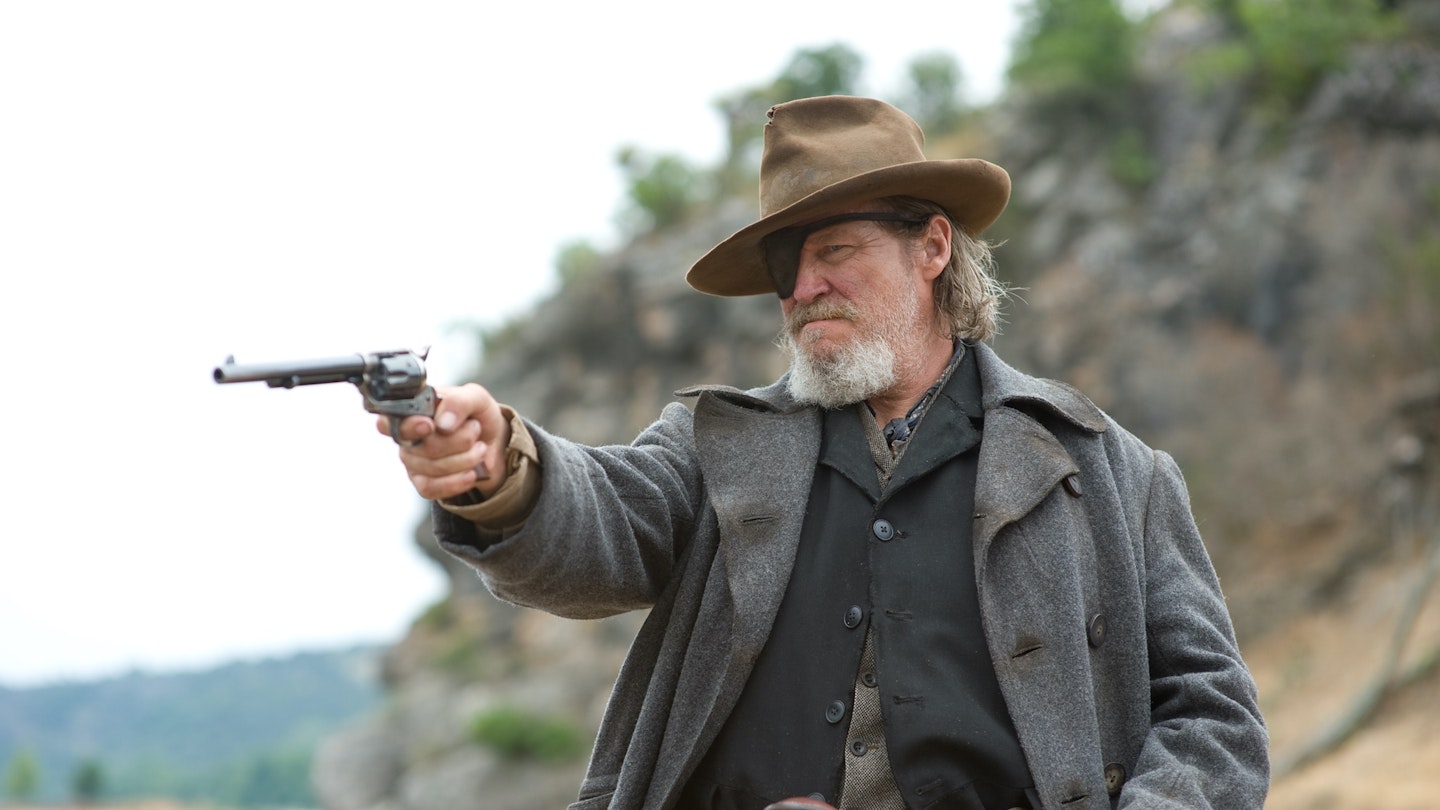The Western genre is supremely adaptable – in the hands of such great directors as Ford, Hawks, Peckinpah and Leone, it has transcended simple stories of gunslingers, homesteaders and bandits, holding a mirror up to the present. Finding plenty of shades of grey between stalwart heroes and scheming villains, Westerns can be both epic and intimate, filled with memorable characters.
If you've always wanted to dive in, but just weren't sure where to start, allow us to offer some prime choices from among the six-shooters, ten-gallon hats, 12 gauges and five-card tricks. And to make it clear, these are our essential picks to get you fully briefed on what the Western genre (one of the oldest and most prevalent of Hollywood narratives) is all about. Let this serve as guide and inspiration for your own expansive journey into the Old West... Horse operas await!
The Searchers (1956)
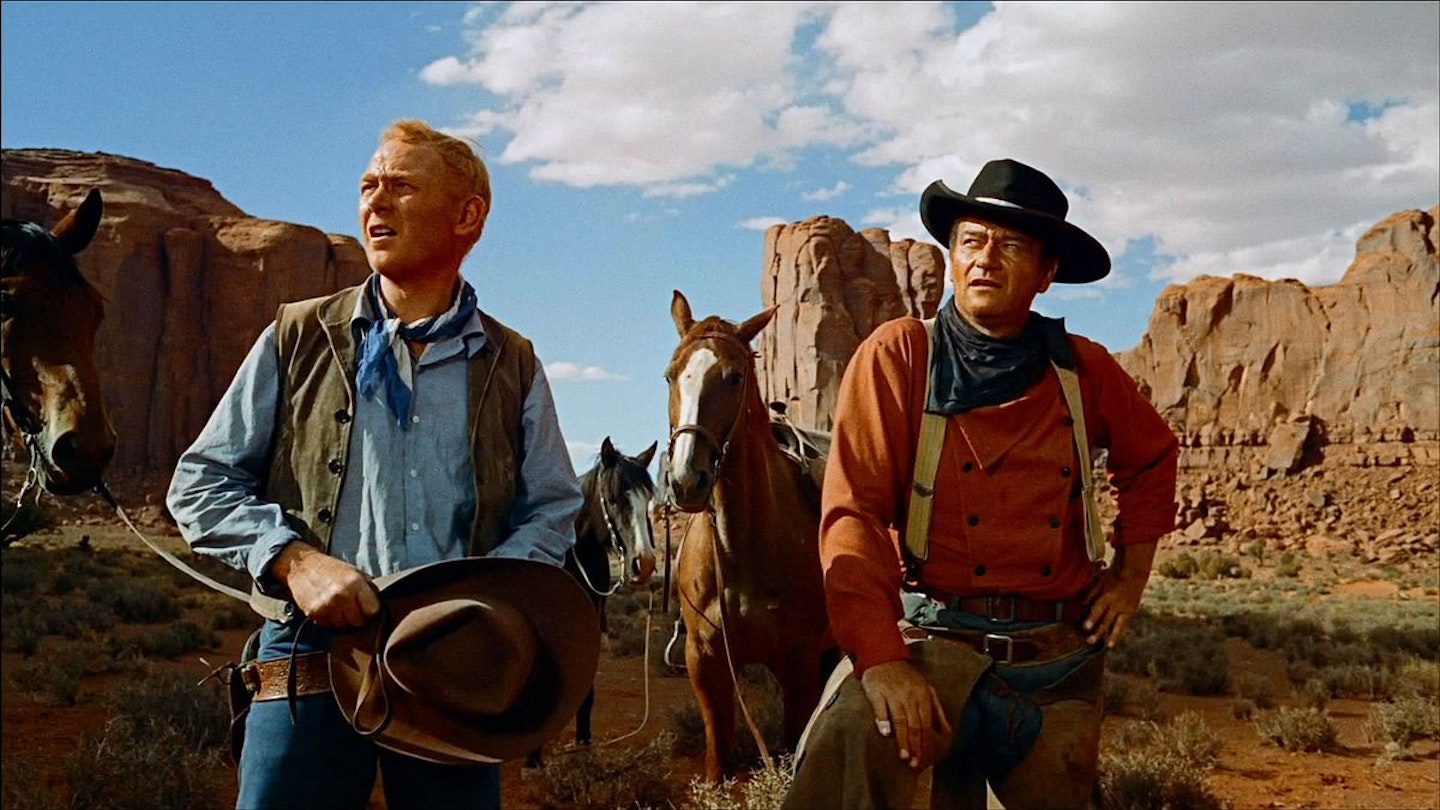
Of all the collaborations between director John Ford and Western icon John Wayne, this is, perhaps, the best. The story of Civil War veteran Ethan Edwards (Wayne), a living raw nerve of a man fuelled by anger, bitterness and no little racism, he's searching for his niece, kidnapped by the natives who murdered her father and other members of the family.
Confronting Ethan's attitudes, Ford doesn't shy away from the brutality at the heart of the West – no one is a true hero here, but it's far more complicated than many of its genre-mates.
Once Upon A Time In The West (1968)

How do you follow one of the most famous trilogies in cinema history? If you're Sergio Leone, you move on to this masterpiece. Gunslinger Harmonica (Charles Bronson, whose character's name is inspired by his musical instrument of choice) clashes with merciless hired gun Frank (Henry Fonda, whose character is not named after his sausage of choice), and the violence spills over to affect others.
Leone's sure grip on his style remains, his dark humour mixed with a sense of how to cast great actors in small roles and help them fill out the world.
Unforgiven (1992)
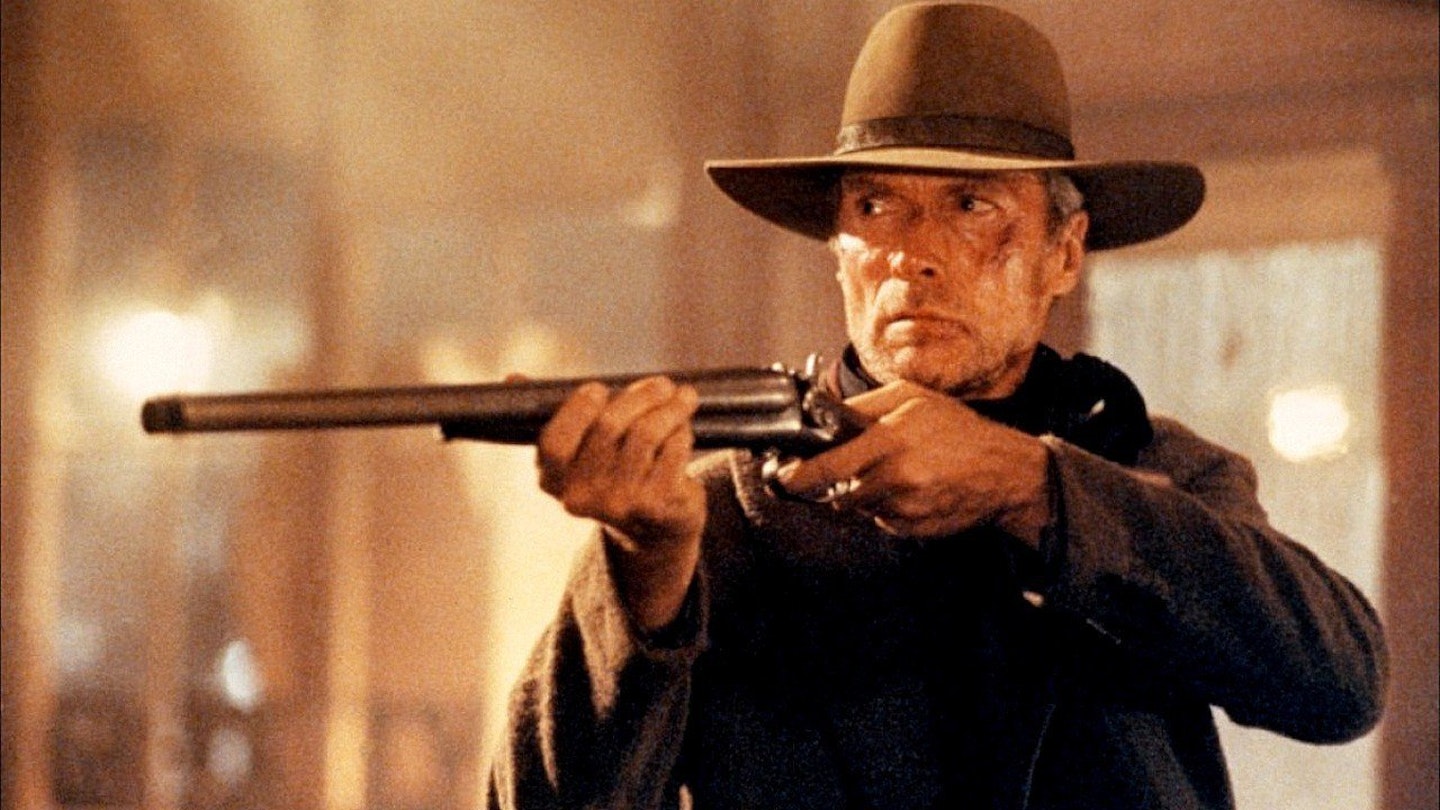
Clint Eastwood had a great run acting in Westerns, and with this 1992 Oscar winner, he proved he was just as adept at directing them. Holding on to this story of retired bounty hunter William Munny until he was of suitable grizzle to bring him to life, Eastwood presents the simple tale of a man who reluctantly takes up arms again when money calls to a new level.
Every frame is layered, and while he clearly took some influences from the likes of Leone and Don Siegel, he makes the movie his own.
Rio Bravo (1959)
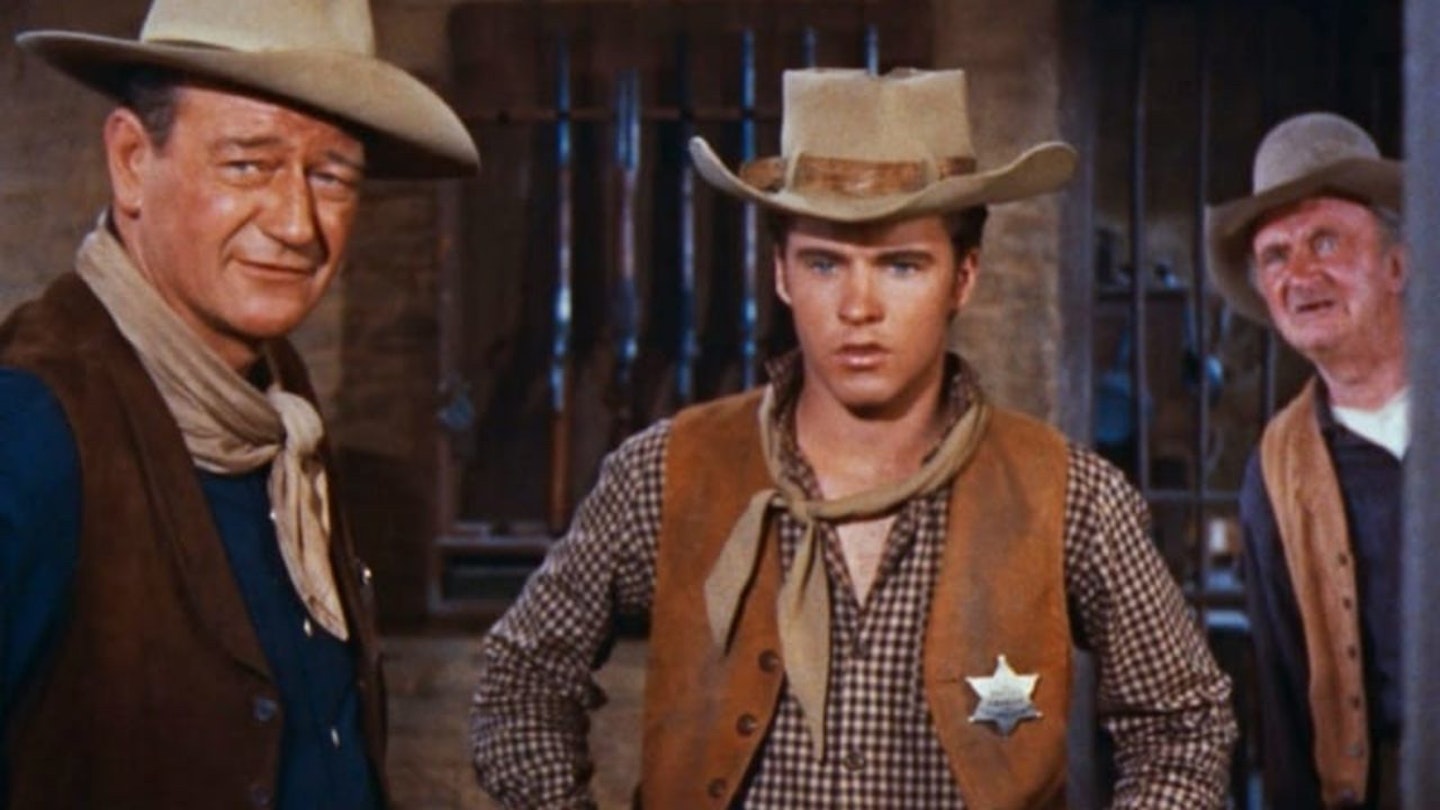
Like a long, winding trot through picturesque desert hills, Rio Bravo is a slow burn, but one that is paid off by a thrilling climax. Until it reaches that, this is the story of John Wayne's Sheriff T. Chance stepping up to defend his pal Dude (Dean Martin) from some nasty ranchers. Dude is a drunk, who has to clamber back out of the bottle, while Wayne is typically tough, but a good friend.
There are songs, there is Angie Dickinson, there is Howard Hawks' typical skills behind the camera. What more could you want?
The Good, The Bad And The Ugly (1966)
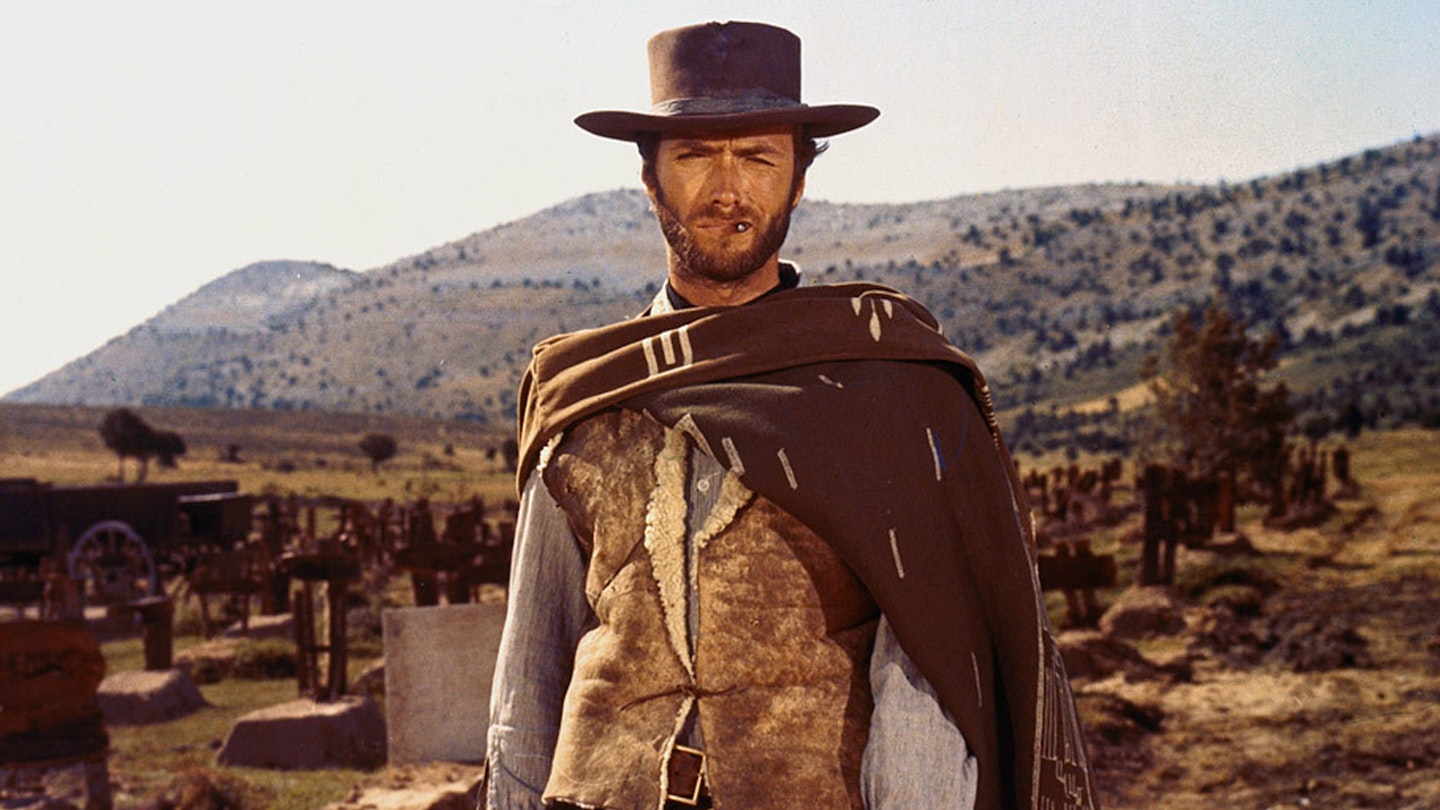
If power corrupts, money corrodes – and that's brought into sharp clarity by the final part of Sergio Leone's Dollarstrilogy. Three men – Eli Wallach's Tuco, Clint Eastwood's Blondie and Lee Van Cleef's Angel Eyes – alternately team up and backstab on a hunt for buried gold. This is Leone turning up the tension on everything that has come before, rounding off the trilogy with a superb entry.
It's the director indulging in everything he loves about the genre - and you'll love it too.
Shane (1953)
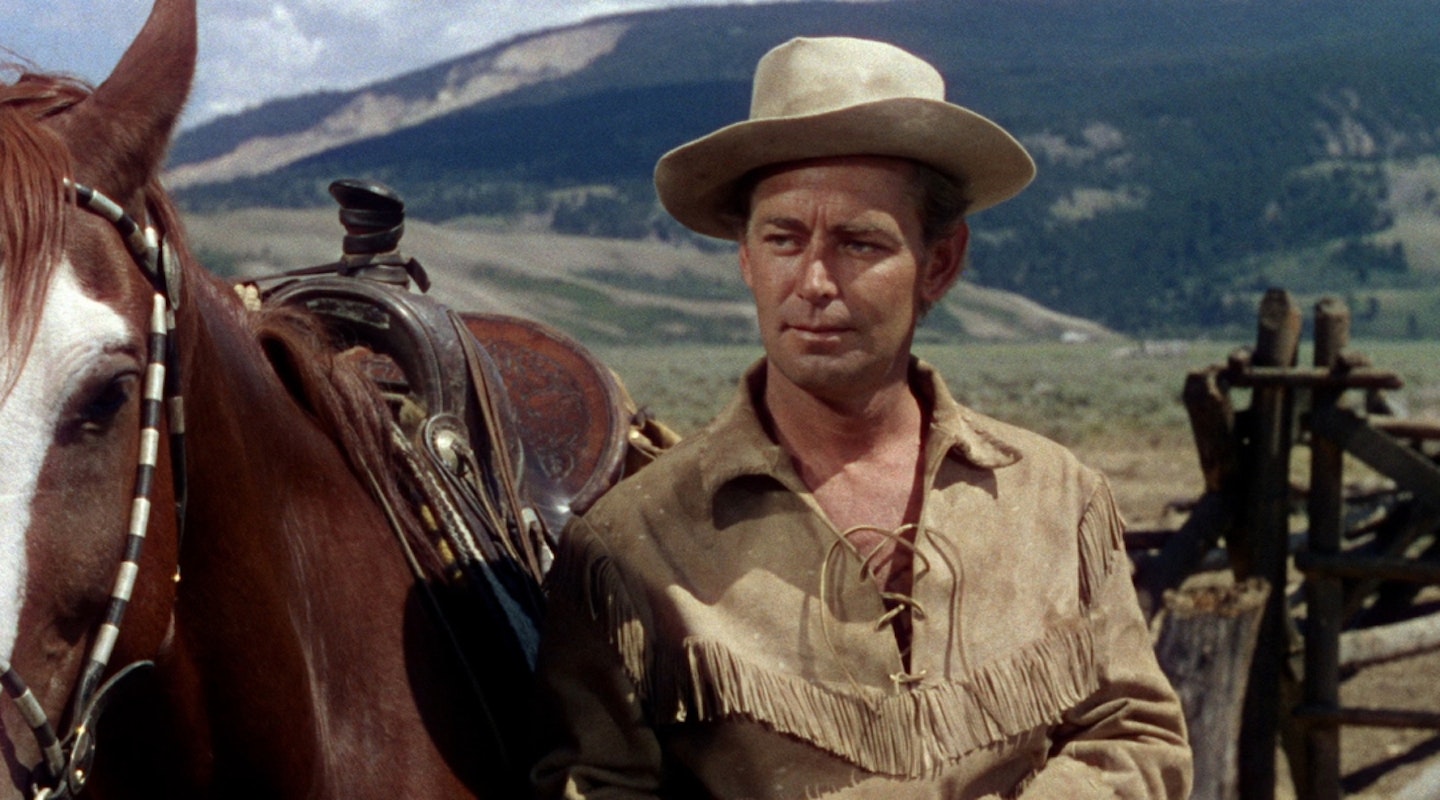
The people who "tamed" the West in its most dangerous eras began to realise that they had no place as civilization began to take over. Alan Ladd's Shane is a prime example of that, a man with a past he doesn't want to share and a fast trigger finger. He befriends a family and tries to embrace a peaceful life – but you know it won't last.
Director George Stevens brought his World War II veteran experience to bear on the movie, and lets the tragedy play out with unblinking awareness.
Butch Cassidy And The Sundance Kid (1969)
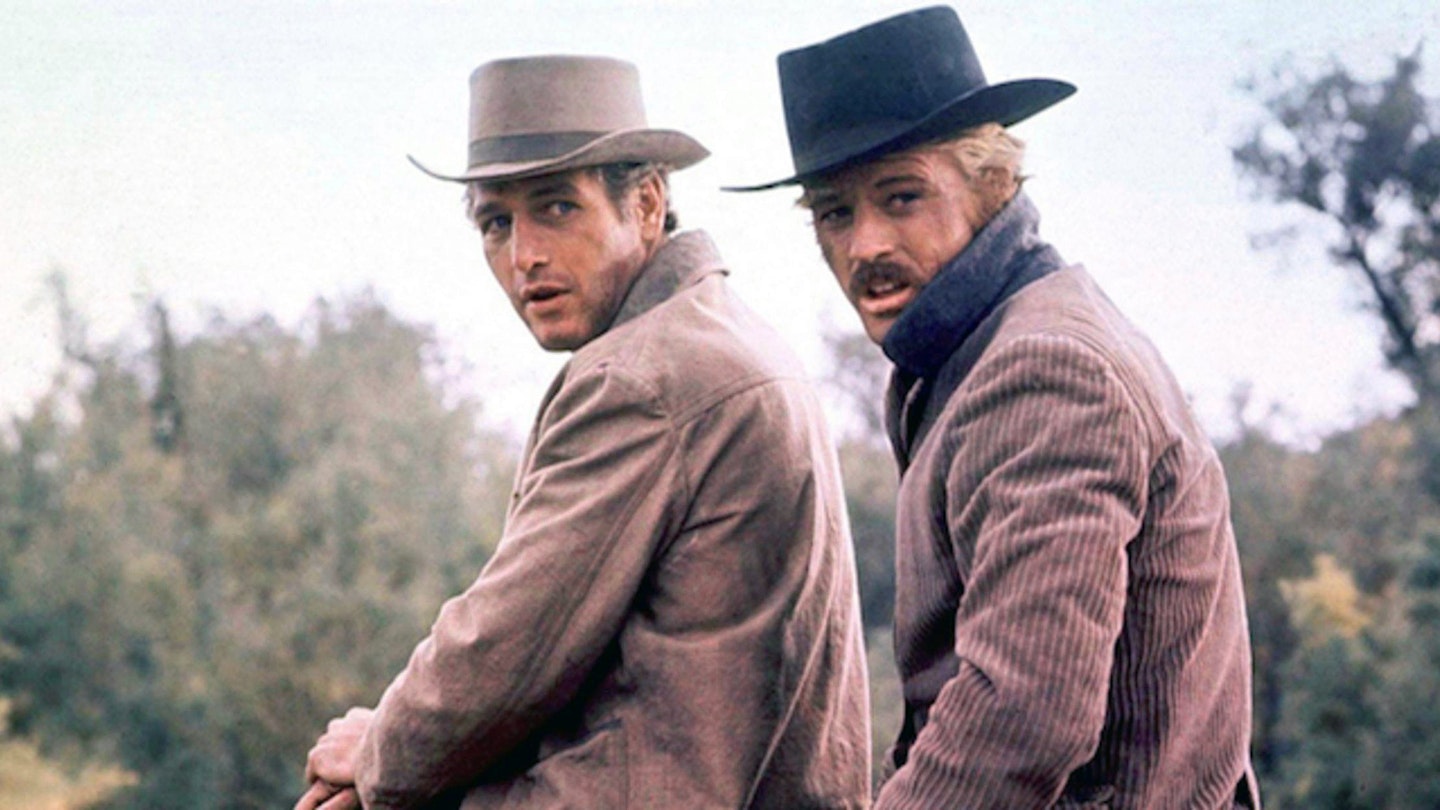
The film so influential that star Robert Redford named a whole film festival after his character, this is writer William Goldman in full flow, with director George Roy Hill marshalling Redford and Paul Newman as two of the quippiest, most charming outlaws to grace the screen.
As lawmen, funded by wealthy businessmen, close in, our heroes try everything to escape the doom that is creeping towards them. And yet, it has a light-hearted feel to balance the darkness.
High Noon (1952)
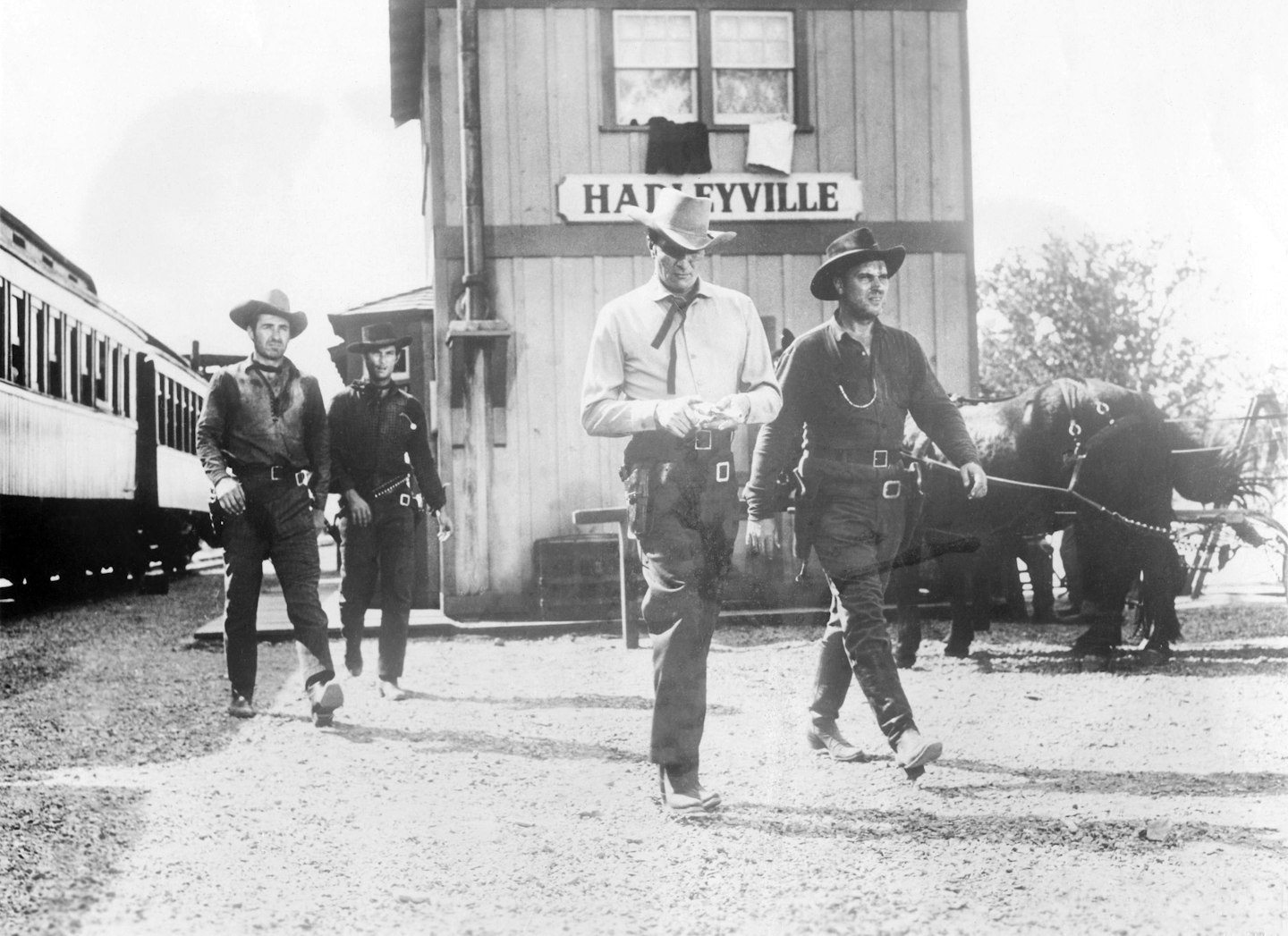
Gary Cooper's Marshal Will Kane discovers that a gang of outlaws are coming to town, looking for revenge. And, to his great concern, also learns that no one in town is willing to help him with his potentially deadly little problem. The stage(coach) is set for a ticking-clock thriller as director Fred Zinnemann lets the action play out close to real time, cranking the tension with every tick of the clock.
While High Noon tends to be criticized for its main character's apparent cowardice, that doesn't take away from what the satisfaction of watching the story unfold.
The Magnificent Seven (1960)
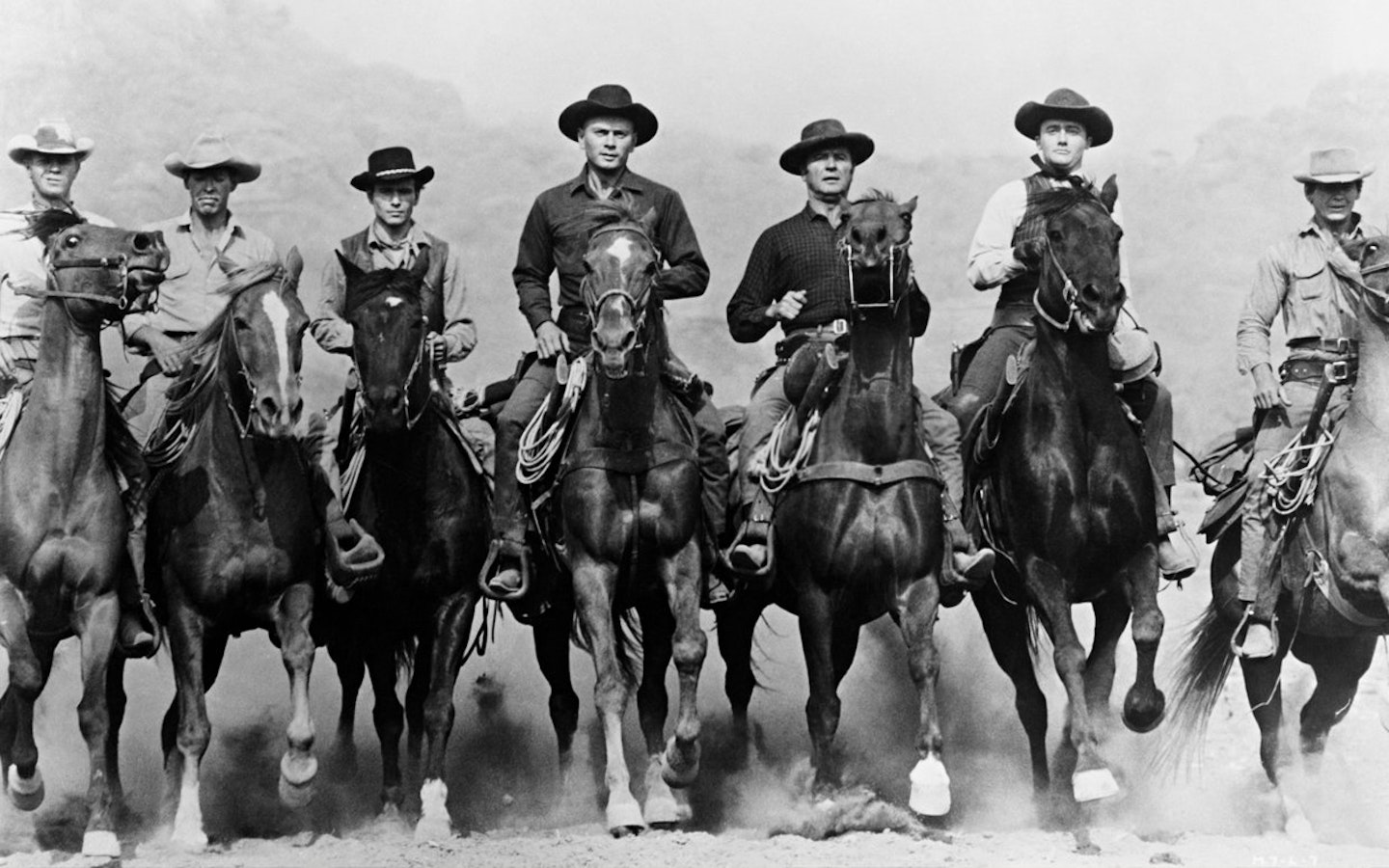
Many films have found inspiration in Akira Kurosawa's Seven Samurai – even Pixar got in on the act for A Bug's Life. Yet John Sturges pulled off one of the better examples with this tale of a mismatched batch of gunfighters who step up to defend a Mexican village against violent bandits.
Great turns from Eli Wallach, Yul Brynner, Steve McQueen and James Coburn really help bring this one to life.
Meek's Cutoff (2010)
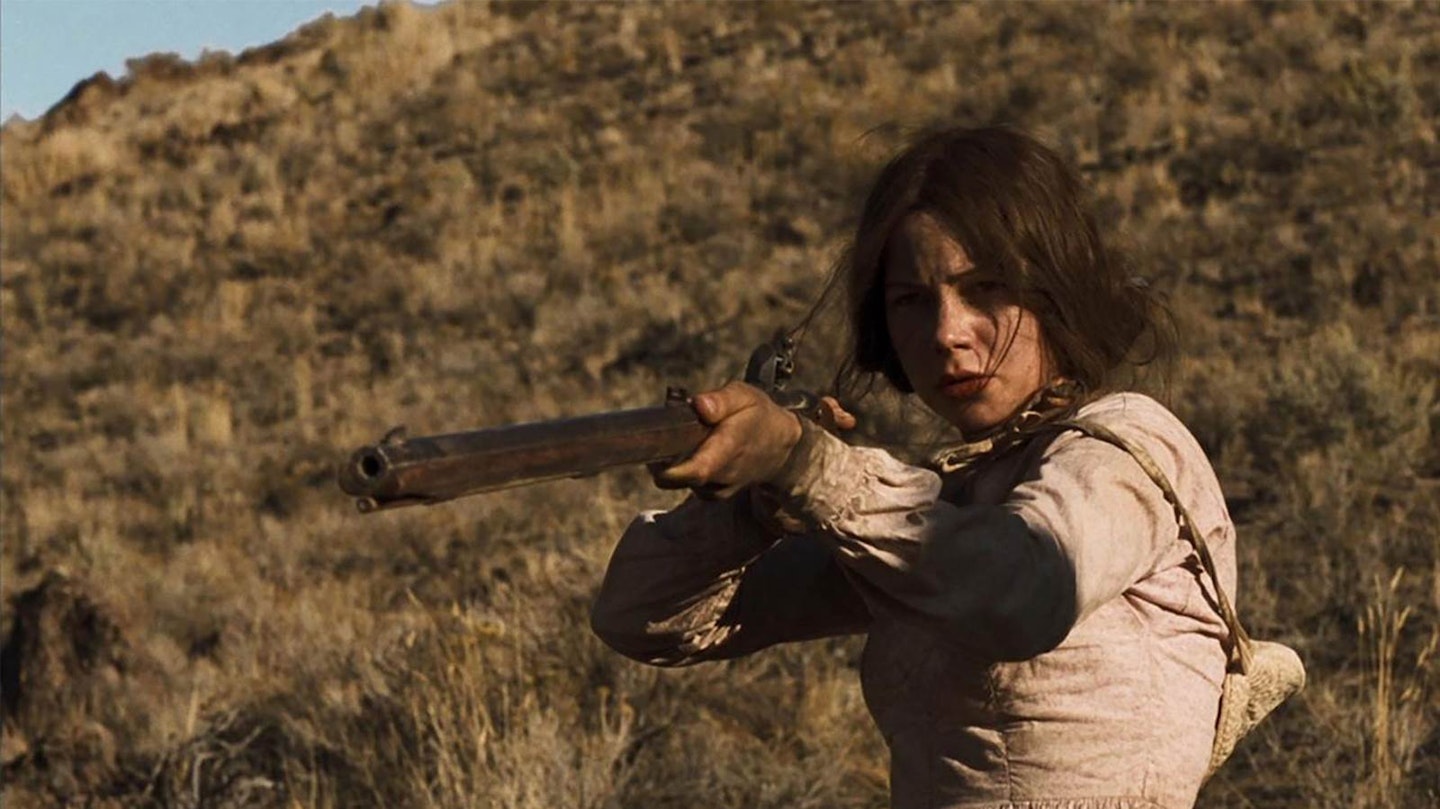
Not your traditional tale of gunslingers and outlaws, this is a tough look at settlers grinding on the Oregon Trail in search of a better life. Even on their best days, this is far from an easy existence, and everything starts to go really wrong as Stephen Meek (Bruce Greenwood) begins to suspect their leader isn't exactly leading them in the right direction. The real focus, though, is Michelle Williams' Emily, a woman who seizes control of her fate with huge consequences.
And if you enjoyed that frontier trail tail from Kelly Reichardt, look out for the director's latest, First Cow, which is scheduled to finally mosey into the UK this May.
The Wild Bunch (1969)
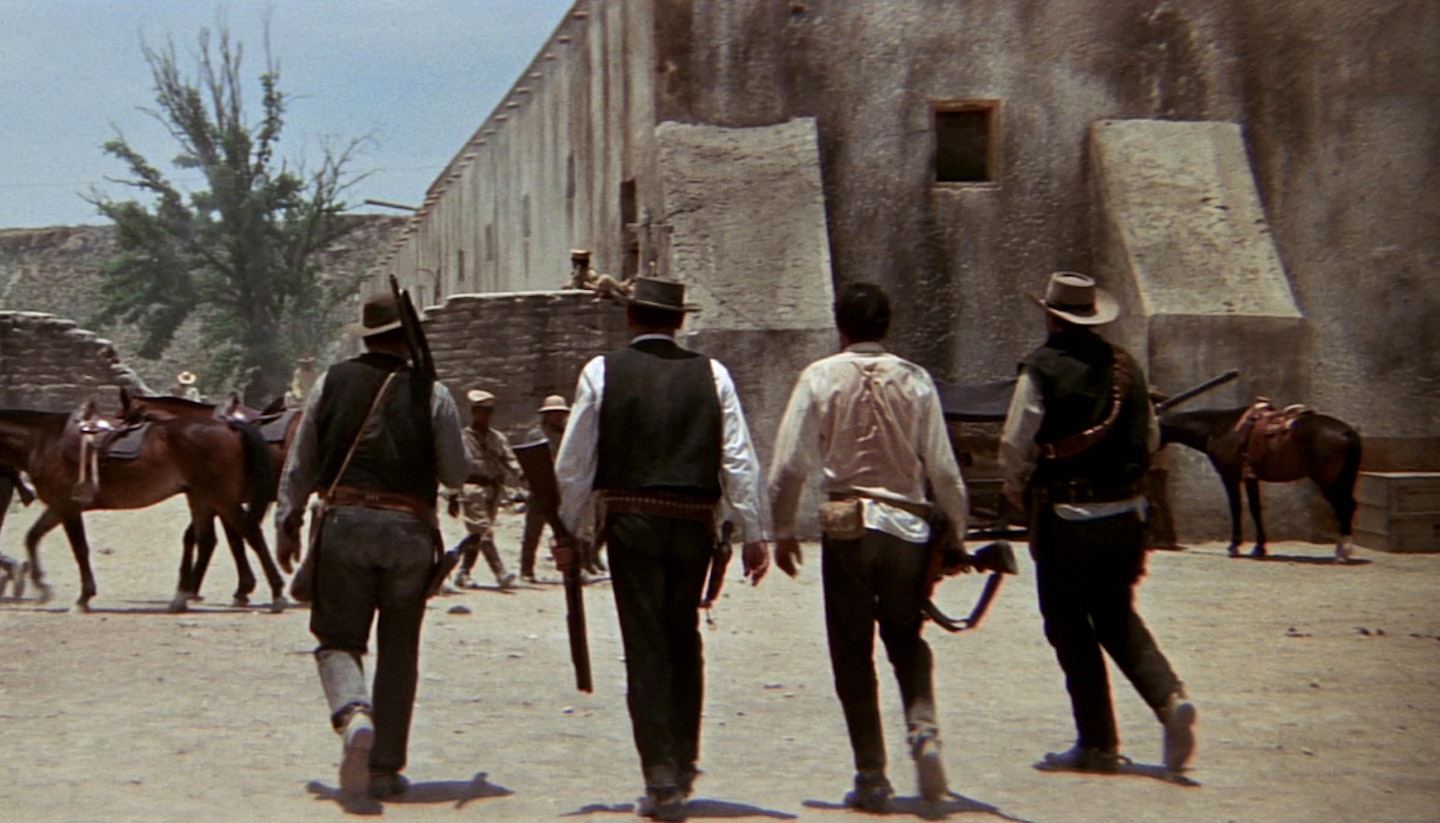
Sam Peckinpah was a man for whom violence on screen came naturally, and he was never shy of splashing blood across the screen. A band of outlaws led by William Holden and Ernest Borgnine decide that they're going for one last score before hanging up their spurs – assuming they survive the attempt.
With an unflinching stare at the fate of men like this, Bunch draws its power from the characters acknowledging their dark pasts even as they look to a future that may never come.
True Grit (2010)
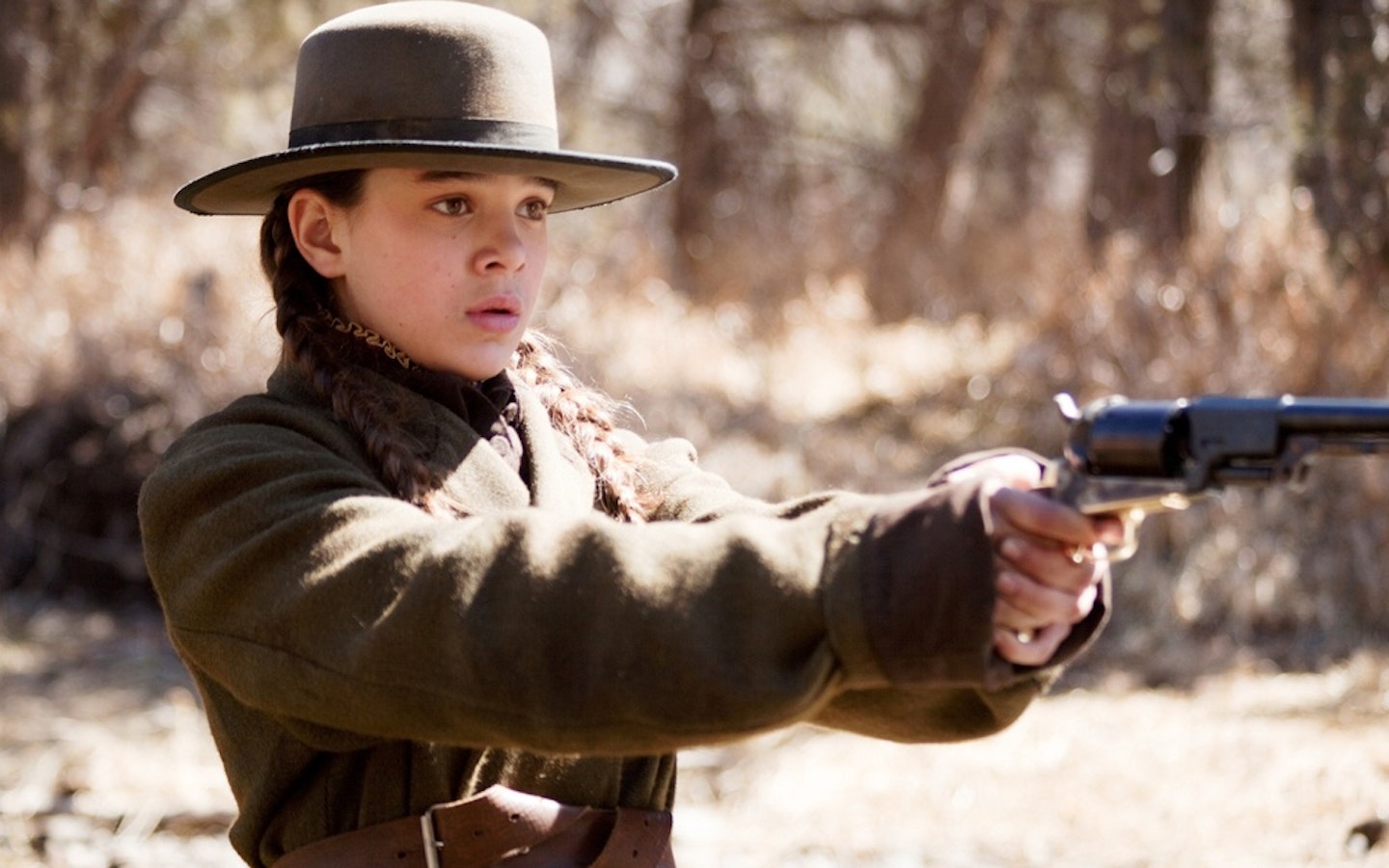
You can take your pick of _Grit_s – the 1969 version, after all, saw John Wayne originate the grumpy Rooster Cogburn. We're choosing to go with the 2010 example, though, as Jeff Bridges takes over the central role and directors Joel and Ethan Coen launch Hailee Steinfeld upon the world. She's Mattie Ross, who has Rooster help her track down the baddie who killed her daddy.
Like the original, it adapts Charles Portis' novel, and maintains even more of the dark humour along with the bittersweet ending.
Blazing Saddles (1974)
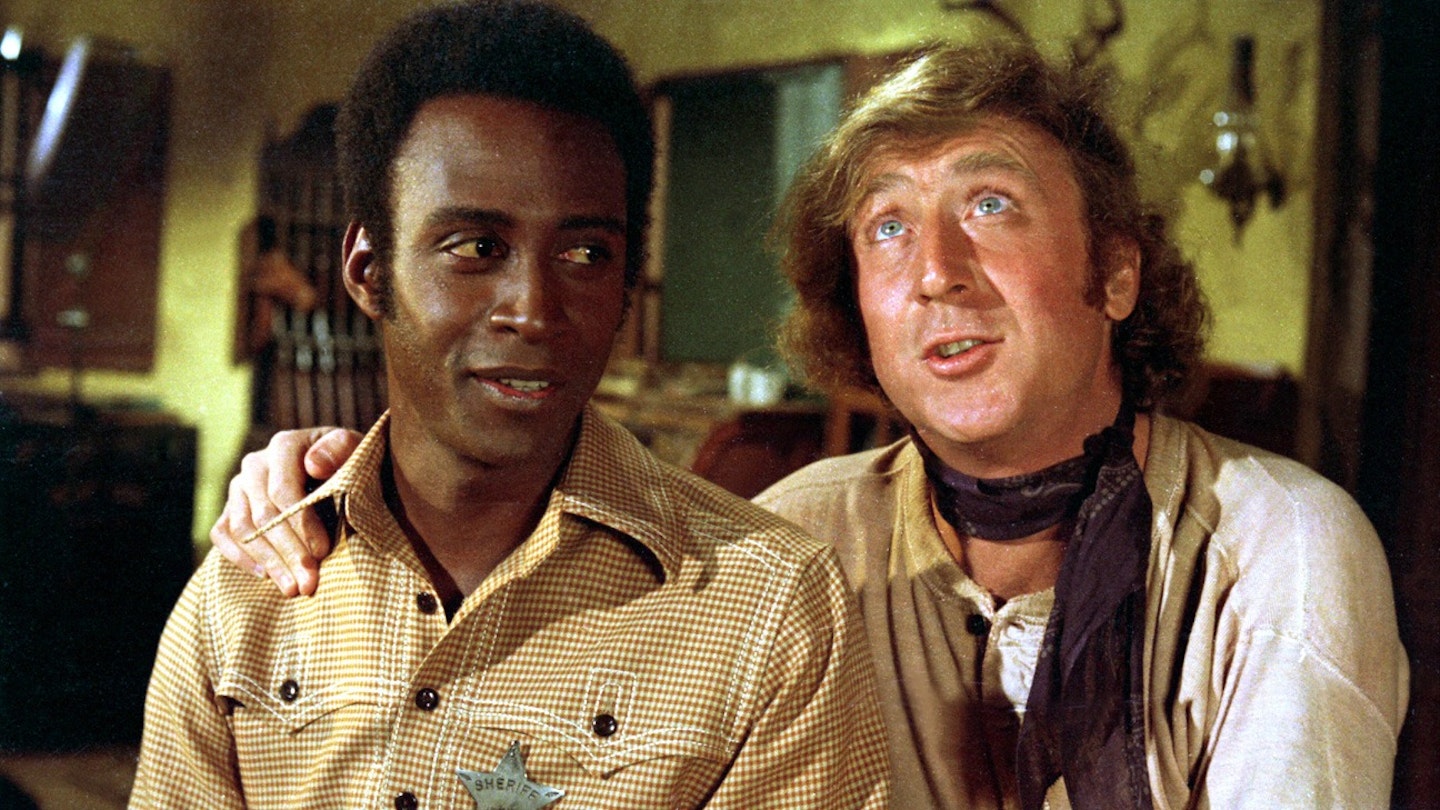
Mel Brooks at the height of his comedic powers, working on different levels, from spoof to satire, cocking a ten-gallon snook at the Western genre while enthusiastically embracing its tropes for a full-hearted example. You may know about the farting gags, but there's so much more to this story of a Cleavon Little's Bart, dispatched to stir up trouble by dint of the colour of his skin.
It's not hard to point to the descendants for this one, not least Three Amigos!
Winchester '73 (1950)
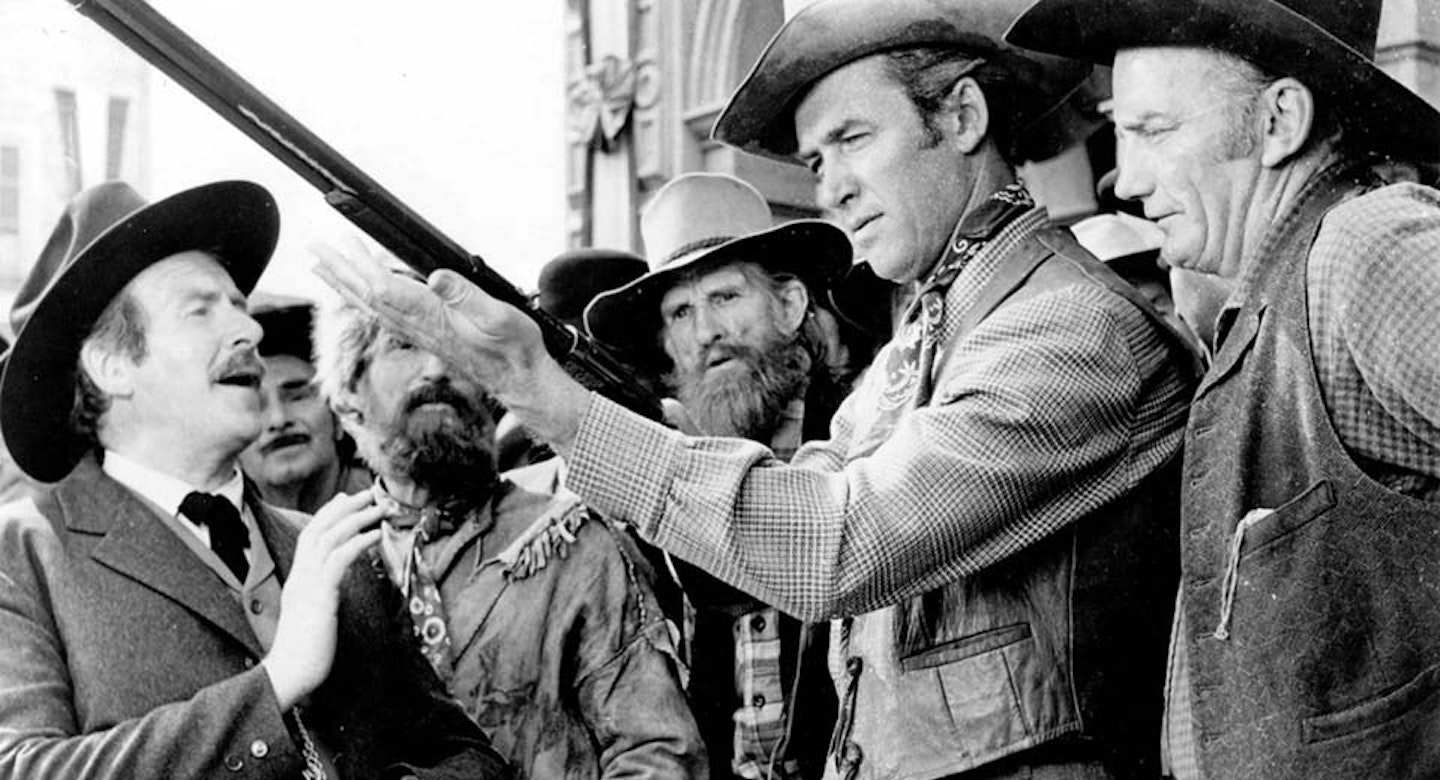
One of the films to truly demonstrate James Stewart's star power after he returned from World War II, Winchester '73 (not the average nipple count of a Supernatural episode) saw him team up with director Anthony Mann, which would become a fruitful partnership. Mann here follows a rare weapon as it passes between the hands of different people, allowing for a look at the West from a variety of viewpoints.
If you're used to seeing Stewart in his more comedic films (and even the charm of It's A Wonderful Life), this offers something different.
The Outlaw Josey Wales (1976)
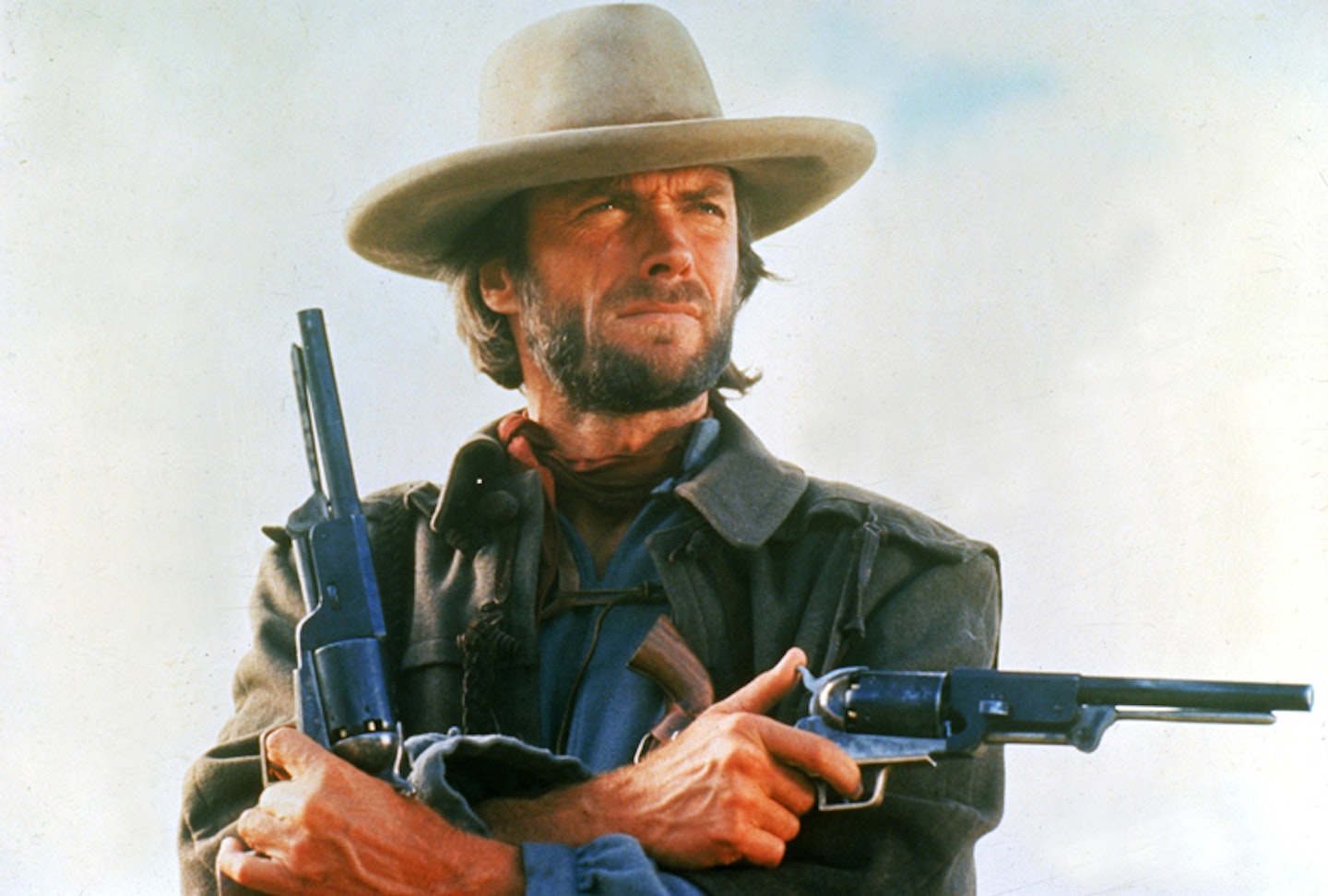
A troubled birth can still sometimes lead to a great movie, and Josey Wales is a prime example of that. Adapting a book by Forrest Carter (who claimed to have grown up in the Cherokee tradition before being exposed as a fraud), Philip Kaufman was originally hired to direct... until he was fired early on. Star Clint Eastwood took over, and steered the final version to victory, playing a Confederate-sympathising militia man with a bounty on his head.
It shows real Clint grit, and channelled the notion of a country mending the wounds of a schismatic war – which resonated back in 1970s America and still holds true today.
